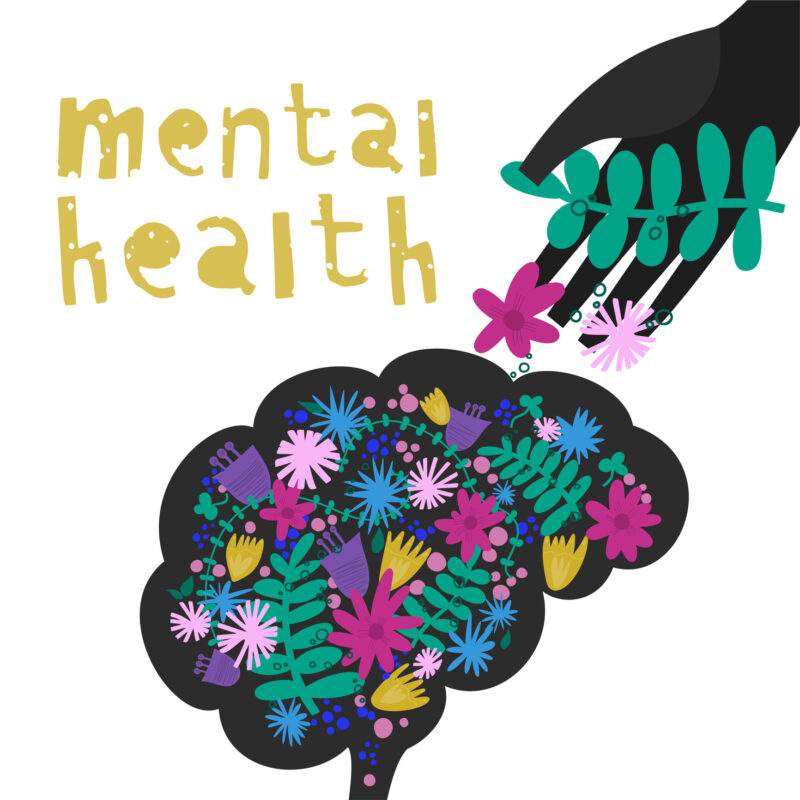Every person has faced the adverse impacts ofthe COVID-19 pandemic in some form or shape. For students, the pandemic has disrupted their studies and social lives. Many learning institutions shifting to online platforms have forced learners to adopt new studying approaches. But the pandemic has also profoundly impacted students’ mental health. This article explores how COVID-19 has influenced students’ mental health and what can be done to mitigate the negative impacts.
Lockdown Restrictions Resulting in Social Isolation
Since the onset of the COVID-19 pandemic, social isolation has been a commonly cited reason for feeling negative among many students. The lockdown restrictions implemented in many countries have limited students’ ability to interact with others, leading to feelings of loneliness and anxiety. Besides, it can be overwhelming to consume negative news about the pandemic frequently.
The positive part is that it is possible to implement different measures to curb the adverse outcomes of social isolation. Finding a different alternative to remain connected to your loved ones can help minimize solitude.
Taking breaks from the news and focusing on positive activities can help alleviate stress and anxiety.
Unexpected Alterations to Learning Environment

Again, many students have encountered the adverse impact of the COVID-19 pandemic because of unexpected alterations to their learning environments. Consequently, these quick changes have partly led them to develop diverse mental health complications.
Most learners have reported numerous difficulties adjusting to online learning. They have had to adapt to a new learning environment, which can be challenging and stressful. In addition, the quality of education they receive may be lower than what they were used to, resulting in anxieties or frustrations.
Other students may struggle with the social isolation that comes with being away from campus, as they feel lonely and disconnected from their friends and classmates.
Finally, some students may be facing financial difficulties due to the pandemic. This causes more stress and anxiety, further exacerbating mental health problems.
It is vital for students struggling with mental health issues due to the COVID-19 pandemic to seek professional help. You can utilize various resources and professional help to deal with these challenges as a student.
Loss of Job Opportunities
The Covid-19 pandemic also significantly impacted the economy, especially by affecting jobs. Similarly, some students lost their internships, on-campus jobs, and other working opportunities as the pandemic took a toll on the economy. Such circumstances directly contributed to increased stress anddeteriorating mental health.
In addition, there was increasing ambiguity following the onset of the pandemic. For example, it became harder to tell if in-person learning would resume, if students would lose their financial aid, and many other answered questions. These are all valid concerns that can lead to a lot of stress and anxiety among many students.
Adverse Mental Impacts from the Social Distancing Rules

Following the pandemic outbreak, health organizations recommended the need for social distancing. As a result, all in-person learning halted, with most institutions shifting to online learning. This sudden change made most learners spend more hours on screen learning instead of using the same time interacting with their peers. This sudden change can be challenging to adjust to and lead to feelings of isolation and loneliness.
Studies have shown that social interaction is essential for mental health, so it’s no surprise that the lack thereof has harmed students’ mental health. Humans thrive well by socializing with others. They need to interact with others to feel fulfilled and happy. When isolated, it’s easy to feel like they’re not part of the world around them.
Further, increased social distancing regulations have made it challenging for students to form and maintain meaningful and lasting relationships. It is very challenging to know another person well via the online platform. And even if you start a close bond, losing touch is easy when you can’t see each other regularly.
Disturbed Sleeping Patterns Due to Anxiety
Covid-19 has significantly impacted students’ mental health, with some reporting disturbed sleeping patterns due to anxiety and depression caused by the pandemic.
Poor sleeping patterns are often caused by anxiety and depression. Symptoms of anxiety and depression can include difficulty falling asleep or staying asleep, restless sleep, and waking up early in the morning.
Covid-19 has increased levels of anxiety and depression in many people. Seeking professional help is most recommended for those experiencing such conditions. You can also concult an expert tutor from homework market online on the alternatives to deal with anxiety and depression.
One can manage anxiety and depression by applying various techniques. Some helpful mechanisms include exercising regularly, talking to someone you can trust about your feelings, and taking a break from stressful schedules. If you are struggling to cope with your symptoms, you must get professional help.
Limited Engagement in Extra-Curricular Activities

It is common knowledge that the pandemic has adversely affected the mental state of many students globally. The limited ability to engage in extra-curricular activities and the increased levels of anxiety and stress that come with living in a pandemic have all contributed to mental health implications for students.
For many students, the Covid-19 pandemic has meant limited social interaction: no more hanging out with friends at school or going out on weekends. This lack of social interaction can be highly detrimental to mental health, as humans are social creatures who need meaningful connections with others to thrive.
The pandemic has caused many people to be in a state of anxiety and stress. For example, many worry about catching the virus, while others worry about the world’s state and future. There was no shortage of things for students to worry about during the pandemic. This constant worry can lead to increased anxiety and stress, which causes mental health to decline.
Conclusion
The COVID-19 pandemic has impacted students’ lives in different ways. Mental health problems and stress levels have increased substantially among students due to the effects of the pandemic.The good news is that it is possible to make various changes to help improve students’ mental health during this time. Many online resources and in-person professional help can assist students in dealing with the stress and anxiety of the pandemic. For students struggling with mental health, seeking help is a viable option.


